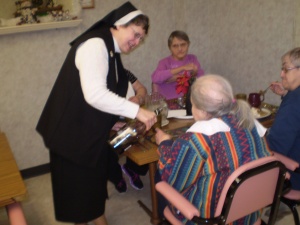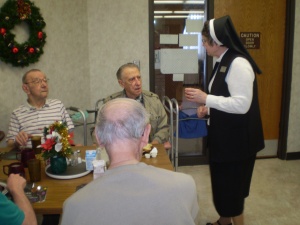In this old Scottish folk song, which is now associated with New Years, we refer to the custom of raising a glass in a good will toast to our comrades. As you age, and before you toast, you might want to look at some interesting facts about alcohol consumption and aging.

As we get older, our bodies change. According to NIH Senior Health, our bodies break down alcohol more slowly as we age (and thus it stays longer in one’s system). Furthermore, it is noted that “the amount of water in the body goes down with age…so older adults have a higher percentage of alcohol in their blood than younger people after drinking the same amount of alcohol.” According to nextavenue.org, you “may become more sensitive to alcohol’s effects” as you age. Drinking the same amount of alcohol may affect you more now than it would have when you were younger. For example (NIH Senior Health), slurred speech may result more readily; you may have a lower tolerance.
Some health problems in older adults which can be worsened by alcohol consumption include: stroke, high blood pressure, memory loss and mood disorders. Also, as we age, we tend to take more medications. These can interact with alcohol also. Some dangers to look out for include: aspirin and alcohol can lead to bleeding in your stomach; drinking alcohol when taking cold/allergy medicine can cause drowsiness; also, “drinking alcohol while taking some sleeping pills, pain pills, or anxiety or depression medicine can be very dangerous,” according to Next Avenue’s article.

